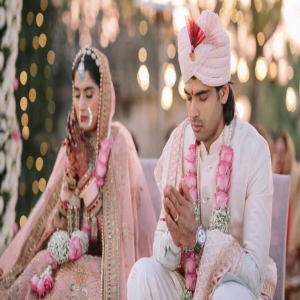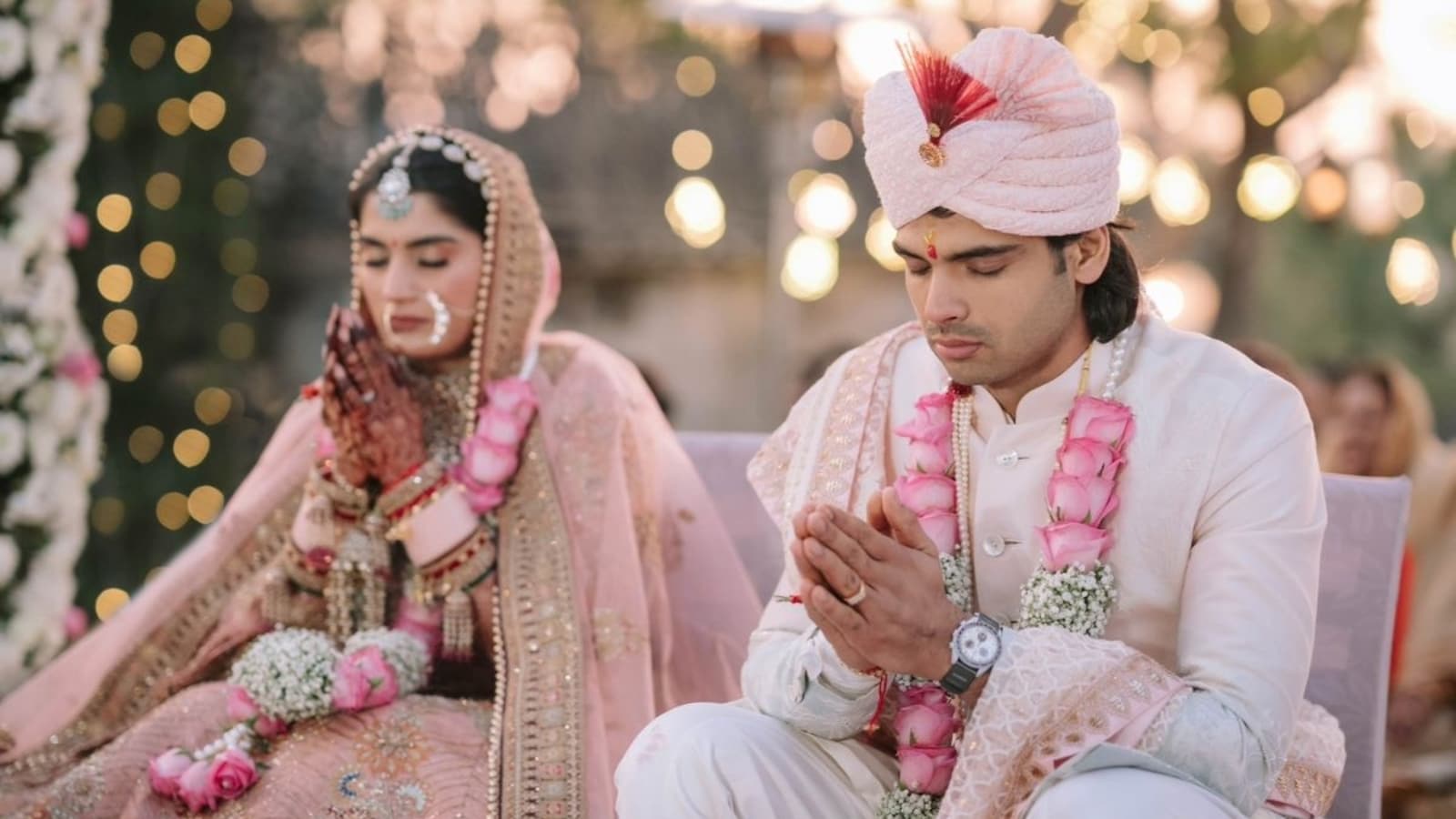

The pandemic has undeniably accelerated a shift towards mindful celebrations in India.
Humble millionaire and Olympic javelin champion Neeraj Chopra's recent wedding to tennis player Himani Mor garnered significant attention, with over 2.4 million online views. The event exemplified this growing trend: couples prioritising intimate and meaningful celebrations over extravagant displays.
Despite his substantial net worth, Chopra opted for a quiet, private ceremony, embracing his Haryanvi heritage. This signals a shift in priorities within the wedding industry. This "nuptial revolution" sees couples valuing genuine connection, sustainability, and personal significance over sheer scale and extravagance.
This trend is especially noteworthy in India, where the wedding industry is a massive ?10 lakh crore market—second only to food and grocery—and a considerable source of employment. However, this substantial industry also presents significant financial and ethical considerations, contributing to the shift towards more intentional weddings. The sheer cost of Indian weddings presents a considerable barrier.
Upper-middle-class celebrations reportedly exceed ?20 lakh, while middle-class families face average costs of ?12.5 lakh—sometimes surpassing annual income. These financial pressures, often exacerbated by social evils like dowry, strain family resources and necessitate caution and due diligence in all aspects of wedding planning.
Marriage, a significant institution, can unfortunately be a target for fraud, with incidents ranging from brides absconding with jewellery to fraudsters exploiting vulnerable individuals seeking companionship. The recent arrest of a 38-year-old man by the Delhi Police for extortion has revealed a disturbing modus operandi: creating multiple fake profiles on matrimonial websites to trap women in his lies. This conman, who cheated over 50 women across the country, primarily targeted vulnerable women - unmarried, widowed, or divorced - building trust with fabricated stories and photos before requesting money for wedding expenses and disappearing with the funds and gifts.
This case raises serious concerns about exploitation in online matchmaking, highlighting the critical need for careful consideration and verification. His alleged manipulation of marriage, a culturally significant institution, underscores the importance of heightened awareness and due diligence. This case also serves as a stark reminder that trust, while essential, should be approached with prudence and substantiated through appropriate safeguards.
The pandemic, coupled with a growing desire for more personalised experiences, has spurred a re-evaluation of traditional wedding norms. Financial pressures also play a crucial role as couples increasingly seek to avoid the long-term financial burden of lavish weddings. Beyond these practical considerations, a reinterpretation of traditions is underway, with couples prioritising meaning and personal connection over sheer scale. This shift translates into opting for smaller, more intimate gatherings, choosing digital invitations over traditional printed cards, and prioritising experiences, such as personalised ceremonies and unique honeymoons, over material wedding favours or gifts.
Today's generation is often more financially literate, understanding the long-term impact of their financial decisions, making them less inclined to overspend on a single event. The influence of social media on wedding planning is complex. While social media platforms can amplify the allure of lavish, picture-perfect weddings, potentially setting unrealistic standards, they also provide a powerful avenue for showcasing diverse styles and budgets, empowering couples to find inspiration for more personalised and authentic celebrations.
Growing awareness of ethical issues within the wedding industry, including the environmental impact of large-scale events and the waste associated with conspicuous consumption, further fuels this transformation. This increased awareness and access to information empower couples to make more informed and responsible choices. While still nascent, the wedding industry is beginning to respond to these evolving preferences. Some venues prioritise sustainability, caterers focus on reducing waste and sourcing locally, and specialised planners are emerging to offer eco-friendly options and personalised experiences. This suggests a growing awareness within the industry of the changing demands of couples.
Are truly green weddings possible? Absolutely!
Companies like Greenmyna, founded by Nupur and Ashwin, are proving it. Meeting at a Mumbai beach cleanup, their shared passion for environmental sustainability sparked a connection that led to marriage. Their own eco-conscious wedding, a testament to their values, became the inspiration for their company. They now help other couples plan green celebrations, minimising waste and maximising positive impact through ingenious solutions for decorations, catering, and waste management. Their story perfectly illustrates the shift towards values-driven weddings, proving that joy and environmental responsibility are not mutually exclusive.
A recent IndiaLends survey of millennials (25-40) revealed that 42% plan to self-fund their weddings (60% of women), primarily through savings (41%) and personal loans (26%), and that there's a near-equal split between arranged and love marriages, with a preference for intimate weddings (59%).
At the heart of these changes is a desire for genuine ex
The modern Indian wedding is increasingly defined not by its scale but by its sincerity. It's about finding a balance between honouring tradition and creating celebrations that reflect the unique values and aspirations of modern couples.
As future generations navigate the evolving landscape of tradition and personal ex
This ongoing shift promises a future where Indian weddings truly reflect the values and aspirations of the couples at their centre, becoming celebrations not just of togetherness but also of a conscious and considered approach to life.
(Views are personal)